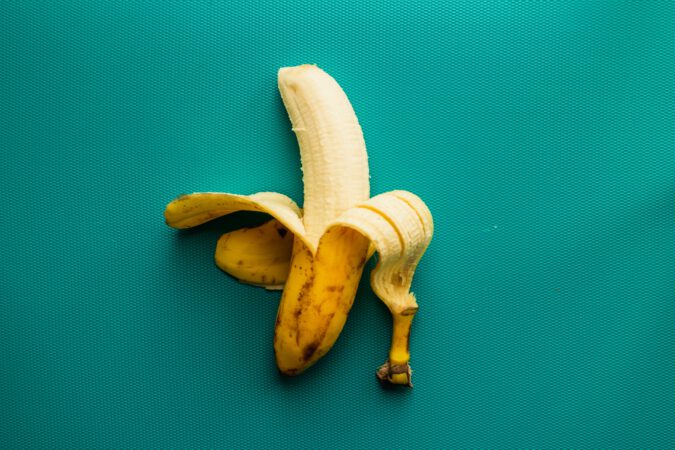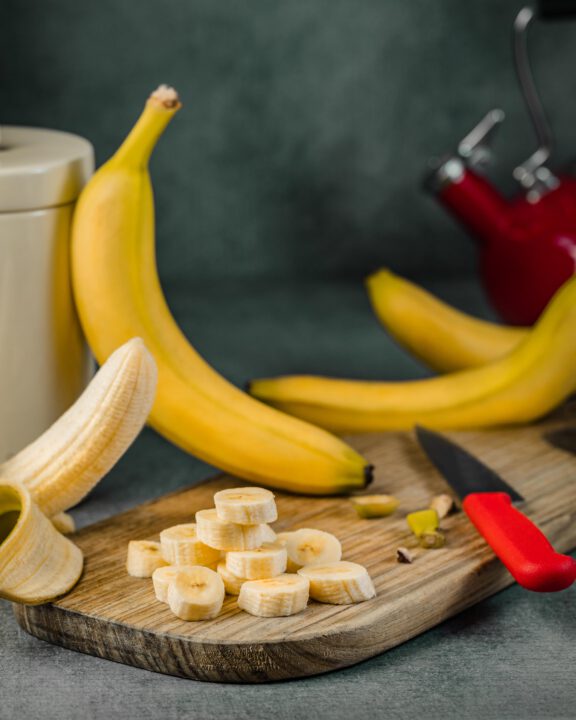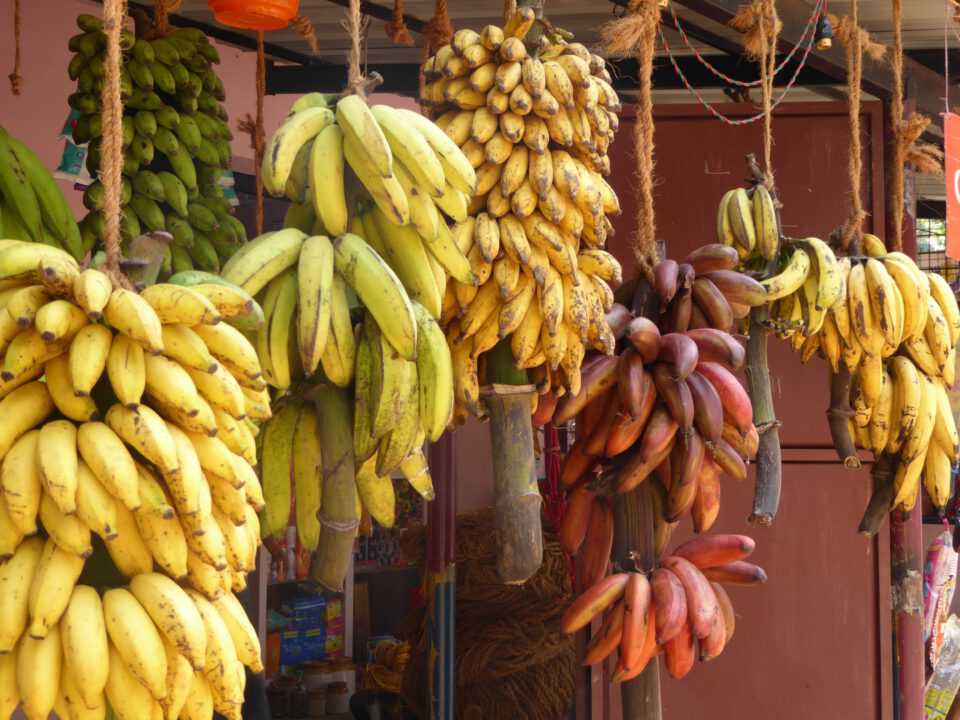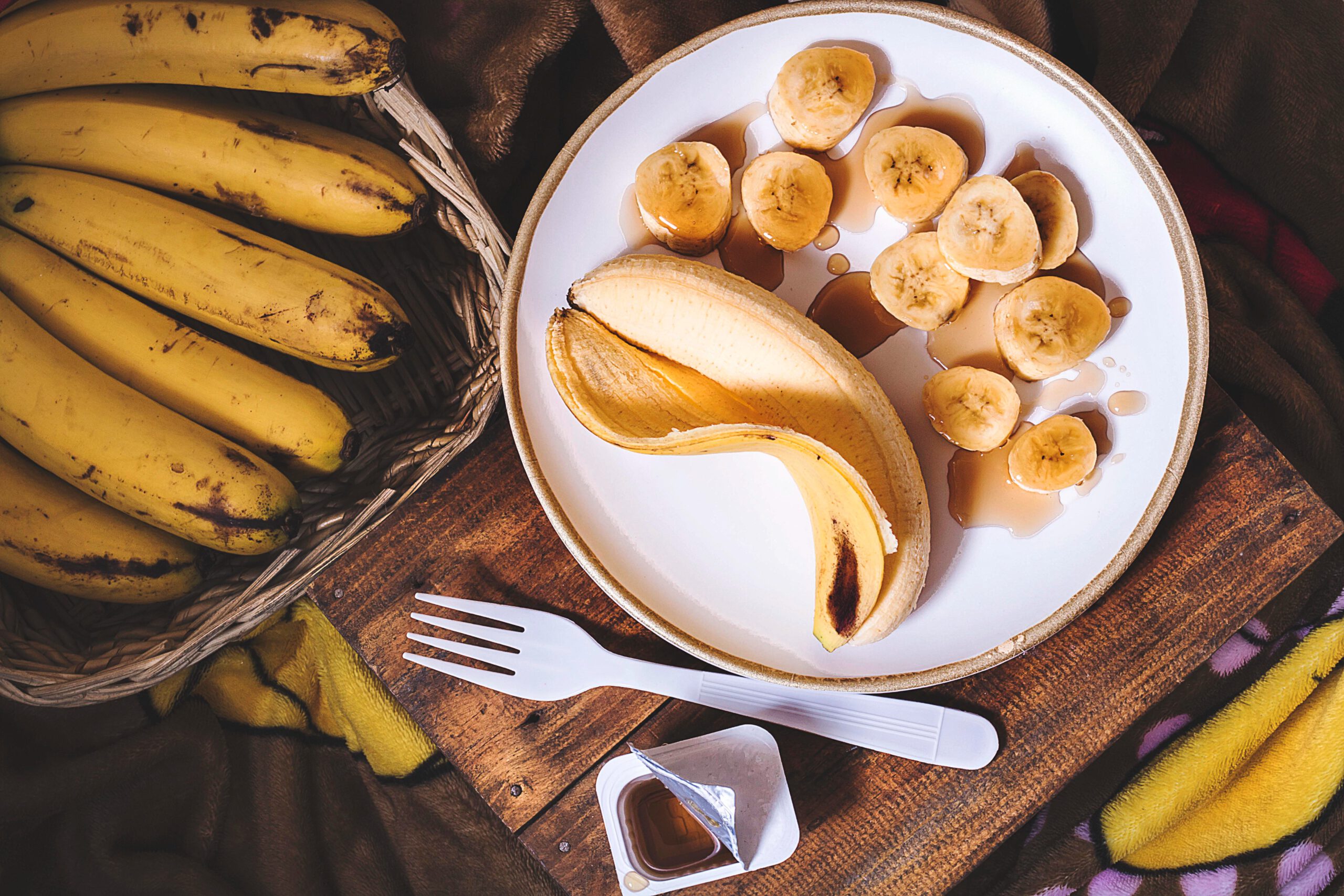Bananas, in particular, contains a high concentration of vitamins and carbohydrates. They promote the production of serotonin in the brain, resulting in a positive, balanced mood and long-term memory improvement. The potency of active substances in fruit is determined by its variety and sweetness.
Apples, various berries, and tropical fruits are highly recommended for their brain-boosting properties, but bananas are especially high in carbohydrates, as they, like potatoes, contain starch. They are high in glucose, sucrose, and fructose.
The more fructose a fruit contains, the sweeter it is. And glucose, in particular, has a far-reaching positive impact on the brain and its performance. Among the various types of fruit, bananas are one of the sweetest, with a high proportion of fructose. This provides the majority of the energy.
This fruit is also high in potassium and vitamins. Bananas are energizing for both the body and the mind in this way. They have a stimulating effect on the brain and improve the ability to react and think in the stomach.
Bananas also contain tryptophan, which stimulates the production of the hormone serotonin in the brain, also known as the “happiness hormone,” which has a slightly euphoric effect and relaxes the body. Bananas are thus more likely to put people in a good mood than chocolate, which is said to have a similar effect.
Do Bananas Improve Your Concentration?
This question is unequivocally answered in the affirmative! Bananas can improve concentration because they contain ingredients that specifically affect the brain and brain power, such as magnesium, B vitamins, and potassium.

Banana Ingredients and Effects
Bananas’ ingredients are diverse and well-balanced. They contain valuable B vitamins as well as tryptophan, which is important for mood. They play a role in neurotransmitter formation and provide energy.
A lack of these vitamins quickly leads to poor memory, fatigue, and an inability to concentrate. Other vitamins are also required for proper brain function.
Vitamins A, C, and E, for example, neutralize free radicals, protect vessels and nerves, and ensure proper brain function, especially in the elderly. A lack of vitamin E limits mental performance, so it only needs to be compensated for.
Artificially made preparations, for example, don’t need to be taken in large amounts, and doing so may cause stomach and intestinal problems or make blood clots worse.
Glucose, on the other hand, is a significant source of energy. The glucose level in the blood must remain constant in order for the brain to receive adequate energy. When the blood glucose level fluctuates, the person feels the effects immediately, becoming mentally and physically exhausted, experiencing confusion, dizziness, and cramping.
Carbohydrates, which are particularly abundant in fruits and vegetables, provide energy to the body. As a result, blood sugar levels rise and insulin is secreted by the body. This sugar is then transported into the cells by this hormone.
The potassium in bananas regulates the heartbeat and water balance in the body, but it is specifically to the brain that it supplies the required oxygen. When stress occurs, the potassium content decreases while the metabolism increases.
This process is reversed by potassium. The banana is also very beneficial to many messenger substances in the brain. Magnesium, B vitamins, and potassium calm the nerves and create a better starting point for memory, decisions, and general thinking.

Preparedness and Consumption
Of course, a banana can be eaten as a snack at any time because it is more filling than other types of fruit. However, it can also be used to sweeten fruit salad, cottage cheese, or morning cereal, making it more beneficial to the body than sugar or other sweeteners. When milk is added to bananas, the body gets important calcium and protein, which go well with the nutrients in the banana.
Some Banana Facts That Are Worth Knowing
- Origin
The Arabs introduced the banana to Africa very early, naming it “banana” (finger). Portuguese sailors didn’t bring the banana to Central and South America, a key area for world production, until the 15th century.
The yellow fruits get their curved shape by first growing downwards on the shrubs, then turning outwards after a short time, and finally upwards, towards the light. This results in the distinctive curvature.
- Situation of cultivation
For a long time, the banana was grown solely for human consumption and self-sufficiency in the so-called “banana belt.” The majority of bananas exported to Germany come from Central and South America’s so-called “banana republics.”
They are grown in large fruit corporations’ plantations, and the cultivation conditions have an impact on the environment and the health of the plantation workers. However, in consumer countries, the social and environmental conditions of large banana producers are rarely discussed. Meanwhile, more traders are getting into the fair banana business and purchasing organically grown bananas grown by cooperatives.
- Varieties
The fruit banana is by far the most popular sweet banana on the market, out of the several hundred different banana varieties grown in the tropics. When the skin is unripe, it is green and gradually turns the typical banana yellow. The mild and sweet flesh is mild and sweet, with a pleasant acidity.
We also have baby bananas, which have been grown extra small and have a strong flavor. Plantains are not eaten raw. It is nearly twice the size of a banana and can weigh up to 300 grams. It tastes and is used like a potato and is mealy and starchy. The flesh darkens and sweetens as it matures.
- Storage
The storage conditions can influence the ripening process:
At room temperature, green fruits ripen.
Bananas should be hung in a cool, dark place if slow ripening is desired.
If you place the banana in a paper bag overnight, it will ripen faster, and you can speed the process even more by adding an apple.
If at all possible, avoid putting bananas down as this can easily cause bruising.
Bananas can be overripened by storing them in the refrigerator. The skin will darken, but the fruit will stay firm and flavorful.
Green bananas will spoil in the refrigerator because the ripening process is slowed by the low temperature. If you keep bananas at room temperature, they will go bad because they can’t continue to ripen on their own.
Bananas in a fruit bowl encourage the ripening of other fruits.
Because bananas need to breathe, they should be packed in a paper bag rather than a plastic bag.

Bananas’ Nutrients
Bananas are extremely nutrient-dense. Bananas contain very little fat but a lot of fiber, which is why they make you feel full but not fat. They also contain carbohydrates (sugar and starch), which provide energy to the body and brain.
The sugar in bananas is quickly absorbed by the body and provides it with energy. That is why bananas can help with acute fatigue. But because the body needs time to digest starch, it gets energy for a longer time and stays full for a longer time.
The yellow fruit is also high in vitamins and minerals. Bananas are high in potassium and magnesium. Potassium is required for muscle growth and fluid balance in the body.
Magnesium, on the other hand, helps to prevent muscle cramps and other problems. Vitamin B6, niacin, and folic acid are the most important vitamins in bananas. Vitamin B6 also helps with muscle development, while niacin keeps skin soft and folic acid helps with red blood cell formation.
Banana Ingredients 100 gram
- Kalium 380 mg
- Magnesium 30 mg
- Vitamin C 11 mg
- Beta-Carotin 30 µg
- Phosphor 22 mg
- Folic acid 15 µg
- Calories 90 (kcal)
Do You Enjoy Eating Bananas?
Serotonin, the messenger substance, is known to convey relaxation, contentment, and harmony and is thus partly responsible for emotional life. The serotonin found in bananas is frequently blamed for improving mood, but this is not true.
This is due to the fact that serotonin ingested with food does not reach the brain and thus has no positive effect in this regard. Nonetheless, eating bananas can improve one’s mood.
The carbs in bananas help the basic protein (tryptophan), which the brain uses to make serotonin, get to the brain faster. This means that the brain can make more serotonin.


